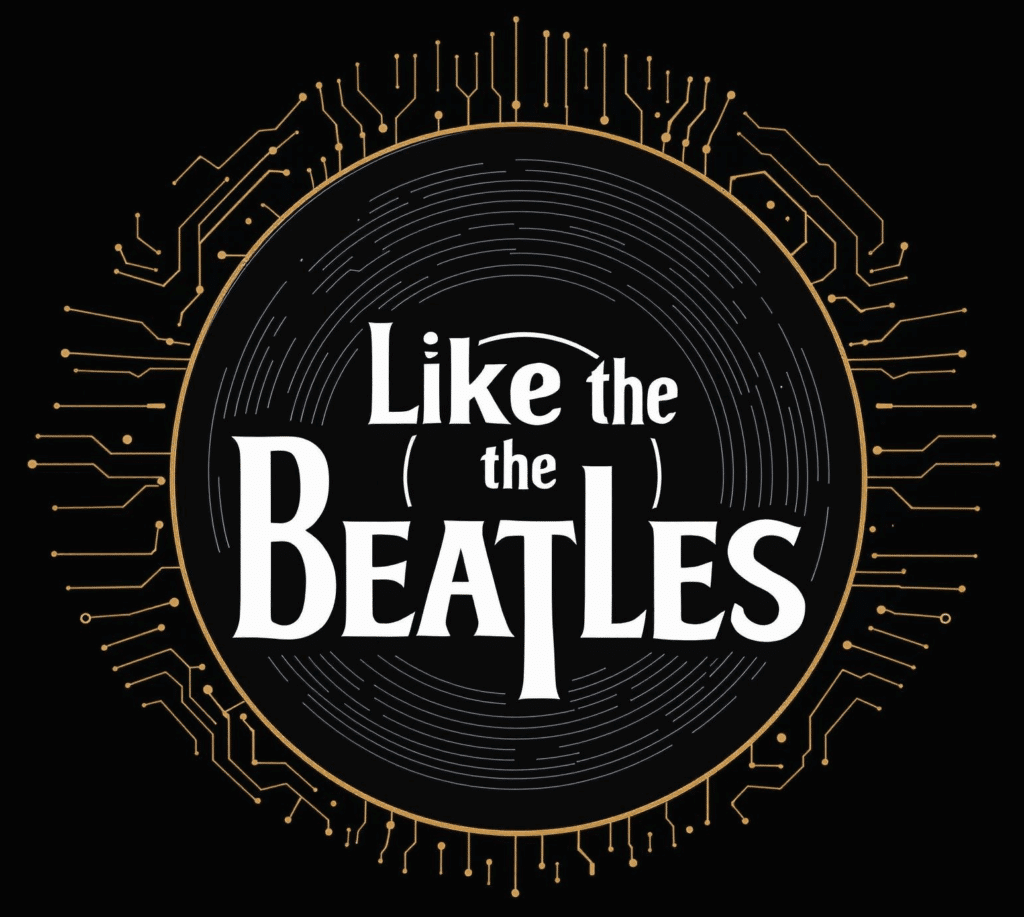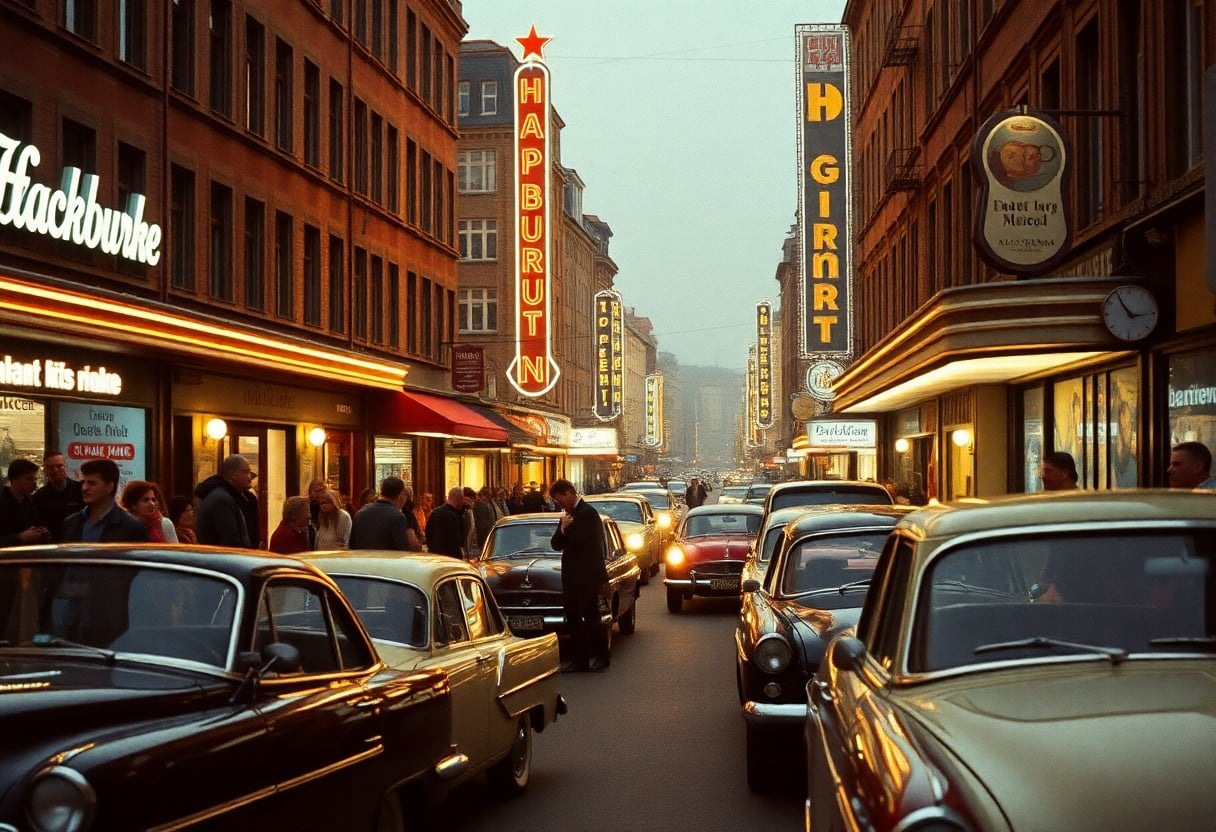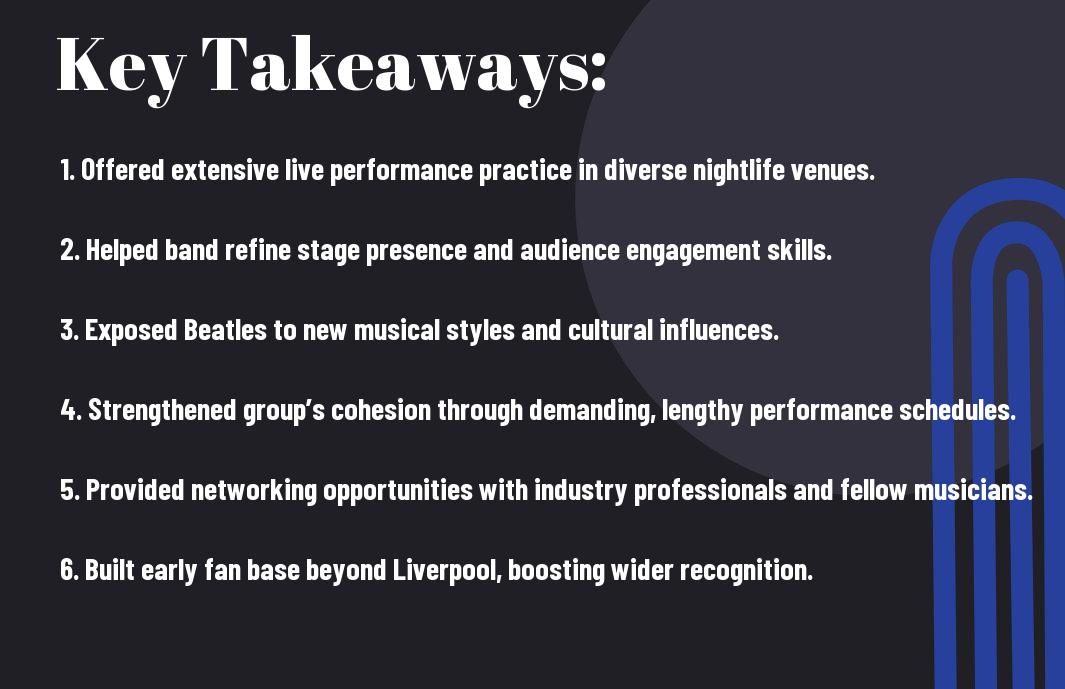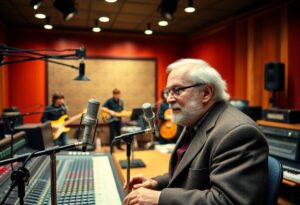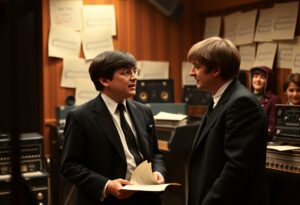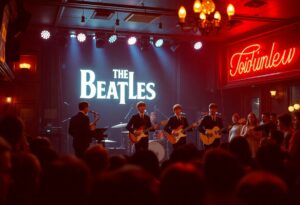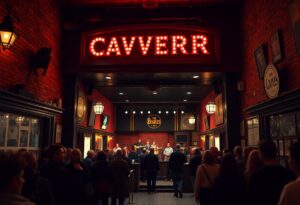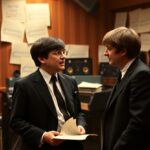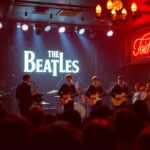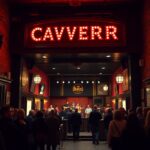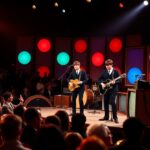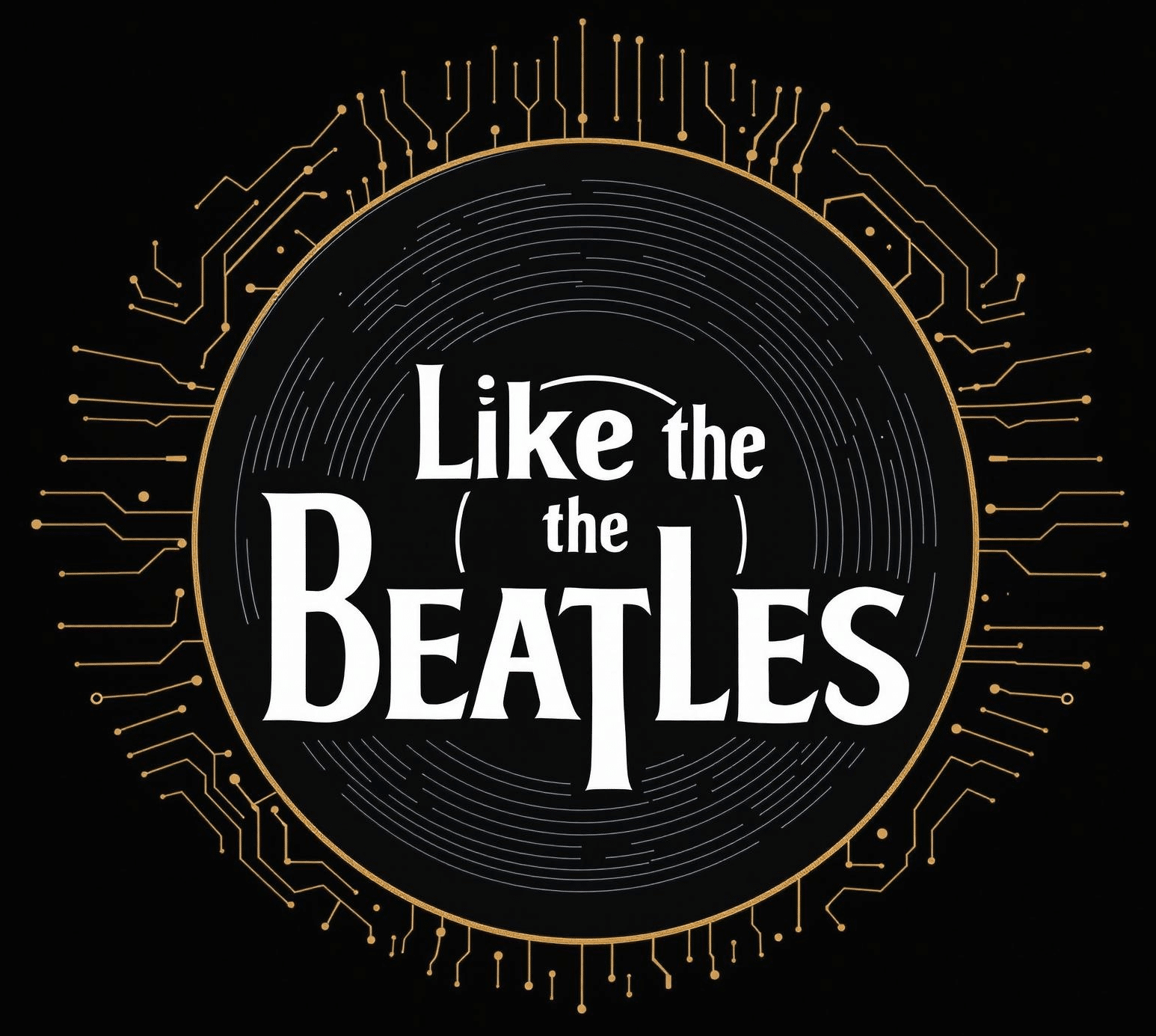Over the years, I’ve investigated deep into the fascinating history of The Beatles, particularly their formative experiences in Hamburg’s notorious Reeperbahn. This vibrant district not only provided a gritty backdrop to their early gigs but also exposed them to intense performances and a diverse array of musical influences. As I explore this iconic street, you’ll discover how these formative experiences helped shape their sound and propelled them from a local band to global icons, ultimately changing the landscape of popular music forever. Join me on this journey to uncover the roots of their legendary status.
Early Years of the Beatles
A pivotal chapter in the Beatles’ journey began in their early years, where their sound and identity began to form in Liverpool’s vibrant music scene. Before they become global icons, they honed their skills through numerous performances, each show contributing to their unique style and camaraderie.
Formation and Local Performances
Behind the scenes, the Beatles started as The Quarrymen, evolving through various line-ups before settling into the iconic quartet we know today. Performing at local venues in Liverpool, they increasingly captured the attention of audiences, laying the foundation for their musical brilliance.
The Hamburg Influence
Against this backdrop, their time in Hamburg proved to be a significant turning point. The grueling, high-energy performances at various clubs pushed them to develop their stage presence and musical versatility, forever altering their sound.
With the *intense nightlife* and numerous gigs they faced in Hamburg, the Beatles were exposed to a more daring side of music and performance. Their experience in the city was marked by *long hours* on stage, often playing *three to four sets a night* in clubs like the *Star-Club and the Indra*. The environment encouraged them not only to experiment with different musical styles but also to interact with their audience in ways they hadn’t done before. This shift was crucial, allowing them to embrace a *raw energy* that would later define their identity. Hamburg was not just a backdrop; it was where the Beatles truly emerged from their local beginnings and began their ascent toward global fame.
The Reeperbahn Experience
Clearly, the Reeperbahn was not merely a stage for The Beatles but a transformative experience that shaped their artistry. In this vibrant and chaotic district of Hamburg, the band honed their performance skills in small, crowded clubs, learning to engage with diverse audiences. Surrounded by nightlife and a unique cultural atmosphere, they transitioned from a local band to a force that could captivate larger crowds, paving the way for their eventual global success.
Cultural Context of the Reeperbahn
Any discussion about The Beatles’ development must acknowledge the Reeperbahn’s unique cultural context. This bustling red-light district was characterized by a mix of entertainment, music, and nightlife, where the band encountered a myriad of influences. It was here they absorbed the essence of rock and roll, blues, and various musical genres, which would later shape their iconic sound.
Key Venues and Performances
On the Reeperbahn, several venues became instrumental in The Beatles’ rise, including the famous Star-Club and Indra Club. These intimate settings allowed the band to play countless nights, each filled with a mixture of excitement and pressure. The intensity of the performances pushed them to develop their stage presence and to experiment with their music, which ultimately attracted a dedicated following.
But it was more than just performances; the Reeperbahn was a place of exposure and raw talent where The Beatles were molded into performers and songwriters. They faced late nights, rowdy crowds, and even the challenges of the local nightlife, which included everything from dealing with hecklers to embracing the vibrant energy of the district. The high-pressure environment forced the band to adapt quickly, experiment with their songs, and connect more authentically with diverse audiences. As they played dozens of gigs, the Reeperbahn became a crucible of creativity, preparing them for the world stage.
Musical Evolution
Not many realize that Forget Liverpool. Hamburg, Germany, made the Beatles … the musical giants they are today. The Reeperbahn offered an environment where their music transformed, infusing elements of rock, rhythm, and blues, setting them apart from their local roots.
Development of Their Sound
On the Reeperbahn, the Beatles quickly experimented with their sound, absorbing influences from various genres and performers. The exposure to a vibrant nightlife and diverse audiences fueled their creativity, allowing them to craft a distinct musical identity that would captivate listeners worldwide.
Impact of Live Performances
Behind the scenes, the frequent live performances honed their skills and bolstered their confidence as performers. As they played long sets in clubs, they learned to engage with audiences, shaping their ability to connect through music.
Understanding the real impact of these performances is key to grasping the Beatles’ evolution. The intense, grueling gigs at venues on the Reeperbahn were not just about playing music; they were about survival in a grungy, unpredictable environment. From dodging rowdy crowds to learning crowd control, every show was a test of resilience. This rigorous schedule, combined with a high-pressure atmosphere, pushed the Beatles to develop a tight-knit performance style and raw energy that would later define their global phenomenon status.
Breaking into the Global Market
Many factors combined to launch The Beatles into the international spotlight, with the Reeperbahn serving as a vital training ground. Their experiences there not only honed their musical skills but also exposed them to a diverse audience. As they performed night after night, they developed a sound and style that would captivate listeners beyond Hamburg, ultimately leading to their worldwide success.
Recordings and Promotions
Along their journey, The Beatles utilized innovative recordings and promotional strategies to enhance their reach. The energy they generated in the clubs translated into studio sessions which solidified their sound. By partnering with forward-thinking producers, they capitalized on their burgeoning fame to produce music that resonated with a wider audience.
Evolution of Their Image
Along with their musical transformation, The Beatles underwent a significant evolution of their image. As they transitioned from the raw energy of the Reeperbahn to polished recording artists, they carefully crafted a public persona that combined style with approachability. This shift allowed them to appeal to various demographics, paving the way for their rise as global icons.
In addition to their music, The Beatles’ image transformation was instrumental in establishing their identity. They embraced their youth and charisma, opting for signature hairstyles and vibrant clothing that resonated with the 1960s culture. With their charming personalities and innovative use of media, I noticed how they became cultural symbols rather than just musicians. This carefully curated image, paired with their infectious melodies, contributed to their endorsement deals and growing fanbase, adding layers to their legend as they broke into the global market.
Legacy of the Reeperbahn
Unlike many other music scenes, the Reeperbahn’s vibrant atmosphere and hustle truly shaped The Beatles’ artistic journey. This iconic district not only served as their training ground but also allowed them to experiment freely, fostering their unique sound and style. The diverse clientele and lively nightlife challenged them to captivate audiences night after night, solidifying their reputation and laying the groundwork for their global success.
Lasting Impact on Music
Behind The Beatles’ ascent, the Reeperbahn played a significant role in influencing countless artists who followed in their footsteps. The energy and creativity that pulsated through this district inspired musicians across generations, affecting the evolution of popular music. Its legacy continues to be felt today, as many bands seek to capture that raw spirit, echoing the experiences The Beatles had on those legendary stages.
The Beatles’ Connection to Hamburg
Reeperbahn became a second home for The Beatles during their formative years in Hamburg. The city offered them a chance to perform extensively, playing in clubs like the Star-Club and the Kaiserkeller, where they honed their craft. Amidst the vibrant nightlife and rough edges, they encountered the darker aspects of the early rock and roll scene, yet it was here that they developed their persona. The energy of the clubs and the eclectic mix of performers they witnessed greatly influenced their musical direction and identity. For them, Hamburg wasn’t just a stepping stone; it was an important chapter in their evolution into global icons.
To wrap up
As a reminder, the Reeperbahn played a transformative role in shaping The Beatles from a local band into global icons. Through their intense performance schedule in the lively Hamburg nightlife, I witnessed how they honed their musical skills, developed a unique sound, and cultivated a strong stage presence. This vibrant environment not only challenged them to excel but also exposed them to diverse influences, ultimately paving the way for their monumental success. Your understanding of this historic transformation highlights the importance of dedication and adaptability in achieving greatness.
